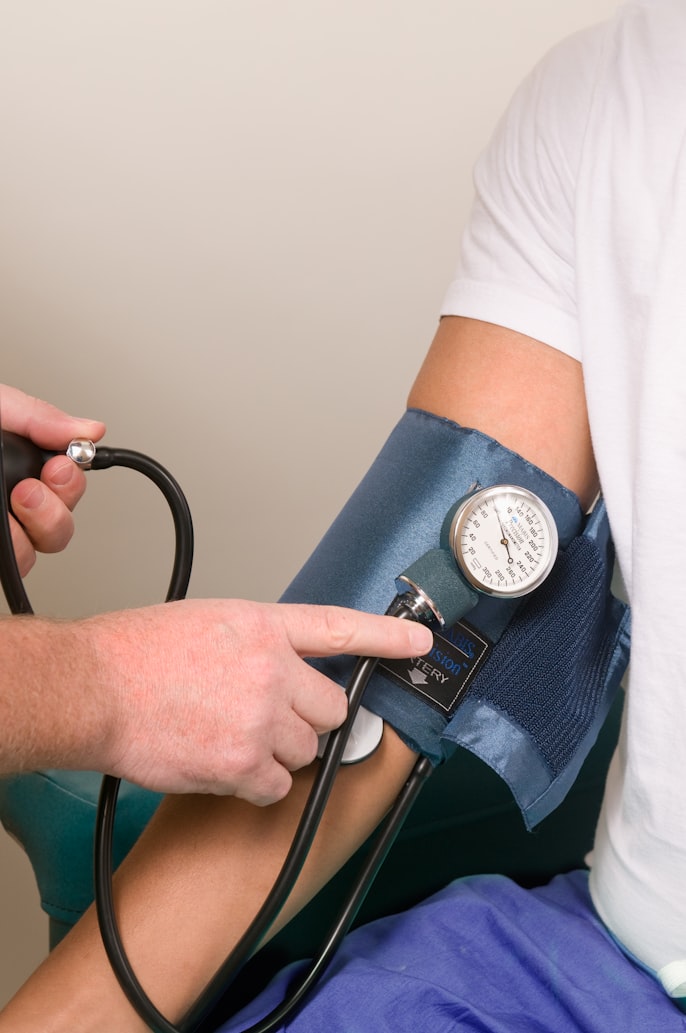High blood pressure is a serious health concern that affects millions of people worldwide. It can result in various problems like heart attack, stroke, kidney problems, and many more. Diastolic blood pressure, one of the components of blood pressure, represents the pressure in the blood vessels between heartbeats. It is essential to maintain a healthy diastolic blood pressure level to ensure optimal heart health. Natural remedies have been used for centuries to treat high blood pressure, and they are still effective today. From dietary changes to physical activity and natural supplements, there are many ways to lower diastolic blood pressure without the need for medication. In this article, we will explore some of the most effective natural remedies for lowering diastolic blood pressure.
Natural Remedies for Lowering Diastolic Blood Pressure

1. Maintain a Healthy Weight
Obesity is a significant risk factor for high blood pressure. When you carry extra weight, your heart has to work harder to pump blood throughout your body, causing an increase in blood pressure. Therefore, losing weight and maintaining a healthy body mass index (BMI) can significantly reduce diastolic blood pressure. Research shows that losing as little as 5% to 10% of your body weight can have a positive impact on blood pressure levels.
2. Follow a Heart-Healthy Diet
Diet plays a crucial role in managing blood pressure levels. A heart-healthy diet includes a variety of fruits, vegetables, lean proteins, whole grains, and healthy fats. You should limit your sodium intake to no more than 2,300 milligrams per day, or even less if you have high blood pressure. Instead, flavor your meals with herbs, spices, citrus juices, or vinegar. Also, limit your alcohol intake to no more than one drink per day for women and two drinks per day for men.
3. Exercise Regularly
Physical activity is essential for maintaining a healthy cardiovascular system. Regular exercise can lower blood pressure by strengthening the heart and blood vessels and improving overall circulation. A combination of aerobic and resistance training has been shown to have the most significant impact on blood pressure levels.
4. Reduce Stress Levels
Stress can cause the release of hormones that increase blood pressure levels, leading to long-term hypertension. Therefore, reducing stress levels through relaxation techniques such as meditation, deep breathing, or yoga can help lower diastolic blood pressure. In addition, spending time in nature or practicing mindfulness can also have a positive impact on reducing stress levels.
5. Try Herbal Supplements
Several herbal supplements have been found to have blood pressure-lowering effects. For example, garlic contains allicin, a compound that can relax blood vessels and lower blood pressure. Hibiscus tea has been shown in studies to lower both systolic and diastolic blood pressure. Other herbs, such as ginger, turmeric, and cinnamon, also have cardiovascular benefits and can be consumed in supplement form or added to meals.
6. Increase Potassium Intake
Potassium is an essential mineral that helps regulate blood pressure by counteracting the effects of sodium. Therefore, increasing your potassium intake through foods such as bananas, avocados, sweet potatoes, spinach, and tomatoes can help lower diastolic blood pressure. Aim for at least 2,000 to 3,000 milligrams of potassium per day.
7. Consume Magnesium-Rich Foods
Magnesium is another mineral that plays a crucial role in regulating blood pressure levels. Consuming foods such as almonds, spinach, black beans, and quinoa can help increase your magnesium intake and lower diastolic blood pressure. Aim for at least 310 to 420 milligrams of magnesium per day.
8. Get Enough Sleep
Sleep plays an essential role in overall health, including blood pressure regulation. Several studies have linked poor sleep quality and duration to high blood pressure levels. Therefore, getting enough sleep, ideally 7 to 8 hours per night, can help lower diastolic blood pressure and promote overall cardiovascular health.
While medication is often prescribed to lower blood pressure levels, natural remedies can also be effective in managing hypertension. Maintaining a healthy weight, following a heart-healthy diet, exercising regularly, reducing stress levels, trying herbal supplements, increasing potassium and magnesium intake, and getting enough sleep can all help lower diastolic blood pressure and promote overall cardiovascular health. However, it is essential to consult a healthcare professional before making any significant changes to your lifestyle or dietary habits to ensure that they are appropriate for your individual needs and medical conditions.

